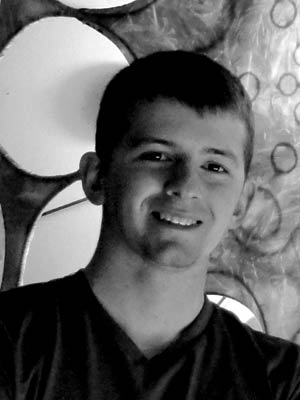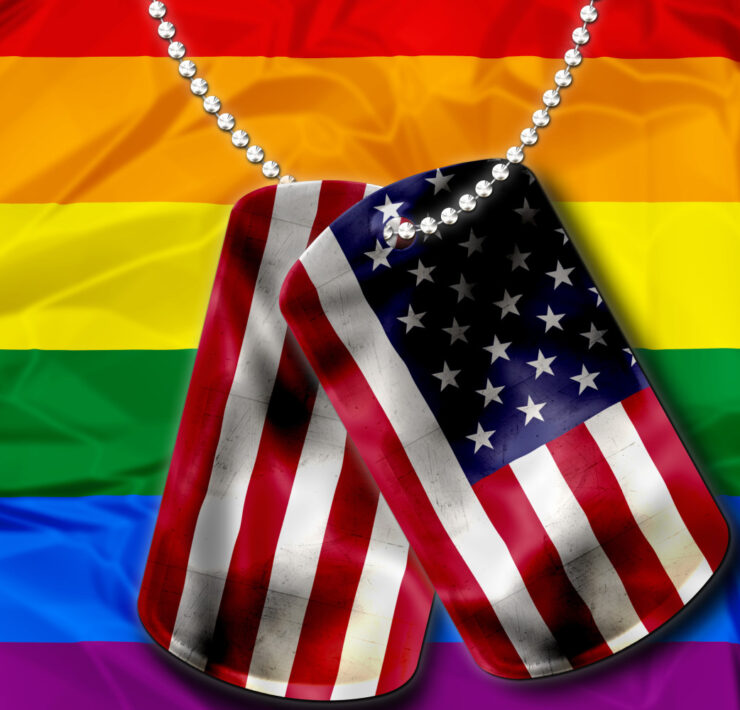Out Air Force Academy cadets march open service into the Wild Blue Yonder

Open service has a special significance for the U.S. Military’s first post-Don’t Ask Don’t Tell generation – and two out cadets at the United States Air Force Academy in Colorado Springs are turning their own past struggles with coming out and current place in military history into a charge to move the banner forward.
They’re co-presidents of the AFA’s first officially-recognized extracurricular LGBT club – Spectrum – which was sanctioned in May 2012 and seeks to forge an infrastructure of support for gay, lesbian, bi and questioning cadets and their allies.
“I felt it extremely important to be out once the repeal occurred,” said Spectrum’s co-president and 21 year-old cadet Brandon Reams.
It’s “for the sake of all the people who couldn’t be out when they were serving,” Reams said. “All the people who were discharged under DADT. We have to represent all those people who didn’t have a chance.”


Reams serves as co-president with cadet Lydia Hill, 19, who expounded on the impact Spectrum has in a post-DADT military.
“Even if we don’t know about it, somebody else is going to benefit,” Hill said. “I didn’t really have that growing up. I didn’t have that sense of community, and I didn’t have that ability to talk to somebody and compare stories or voice my fears.”
Hill grew up in Boston, Massachusetts, a famously-liberal city in the first state to legalize same-sex marriage in 2003. But despite a relatively inclusive climate, Hill struggled with her sexuality in high school.
“For me, a lot of it was internal shame and coming to terms with the fact that I was gay,” Hill said. Hill remained silent about her sexuality until she became an AFA cadet.
“I didn’t want to have to make up stories and make up lies and have to track all of that for people,” said Hill, adding that coming out alleviated the pressure of pretending to be straight. “I’m not ashamed to be gay, and I’m proud of being gay.”
Reams, too, struggled with his sexuality, transferring to a boarding school to escape the homophobic environment of his hometown.
“Growing up in high school, I tried my best to get out,” he said. “I grew up in a very small town, around 800 people, in North Carolina.”
“I was homophobic myself,” Reams said. “I thought that everything was wrong, [that] it was not normal.”
But by the time Reams arrived at the Academy, he was comfortable enough to come out to his classmates. Reams and Hill were cadets for only a few months when Don’t Ask, Don’t Tell officially ended in September of 2011.
Consisting of about eighty cadets, Spectrum works to cultivate the AFA community of open servicemembers by administering support when needed, creating safe environments, and educating others to dismantle misconceptions and stereotypes. Members are active in their local community, assisting in cleanup earlier this year from the Waldo Canyon forest fires and raising $600 for the Garden of the Gods AIDS walk.
Spectrum plans to establish an annual leadership conference with other gay military academy clubs and also hopes to host a symposium, inviting military members who served under DADT to share their stories with other cadets.
“The biggest thing is changing the culture around how people talk about gay military members,” said Hill, commenting on how some cadets grew up in a culture saturated in prejudice toward the LGBT community, many of whom Hill says will unknowingly use hurtful comments or terminology. “It’s just teaching people that saying those things, you may not mean it offensively, but it can be interpreted in an offensive way.”
Spectrum is at the forefront of a prodigious paradigm shift concerning gays in the military. A 2012 survey conducted by the Palm Center reported that the repeal of DADT had no negative impact on military readiness, unit cohesion, recruitment, retention or morale.
The study quoted AFA Professor Dr. David A. Levy, Officer in Charge for Spectrum: “I knew this [DADT repeal] was not going to be an issue . . . but I was somewhat amazed about just how much of a non-issue it was. There was virtually no talk about it whatsoever.”
The study’s findings reflect the general disposition of the cadet wing, according to Reams. “We haven’t experienced really any hardships with coming out. You can actually share a weekend story and everyone’s asking questions. It’s just really great breaking down that wall of uncertainty.”
Hill commented that there are some classmates who still feel uncomfortable around open cadets. “But they’re still professional about it, regardless of personal feelings. That’s been the biggest thing overall across the military with Don’t Ask, Don’t Tell.”
Though the Defense of Marriage Act blocks same-sex partners from receiving military benefits, and transgender military personnel are still banned from serving openly, Hill and Reams remain optimistic about the future of LGBT inclusion in the military.
“Starting Spectrum at the Academy is allowing us cadets to have the conversation that was much needed and absent before repeal,” stated Reams. “I’m super excited to see that it really is a non-issue, and that cadets are welcoming of their gay brothers and sisters.”
What's Your Reaction?
Greetings. I’m Mike. People call me Mike. I’m just a gay guy trying to be creative before I’m kicked off this spinning, planet-sized spaceship hurdling through the void of space. Writing and photography are the creative outlets I spill my brain into when mental monsters start clawing at the back of my eyes. I only hope these articles provide readers with a few insights I’ve carefully gathered in cupped hands, cracked hands that have dueled for decades with these nebulous shadows that haunt so many lives. Plus, writing is a great way to pass the time on this planet-sized spaceship hurdling through the void of space.










